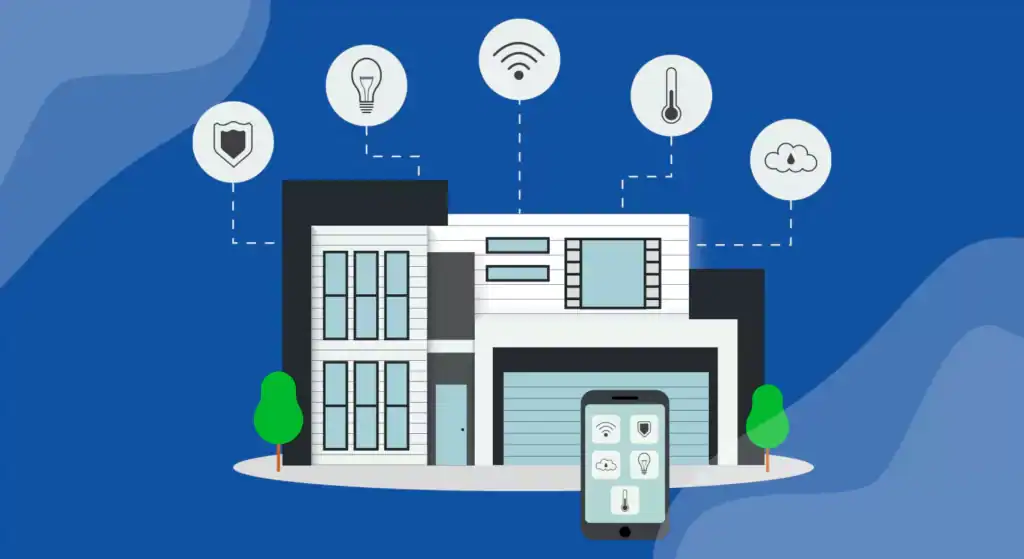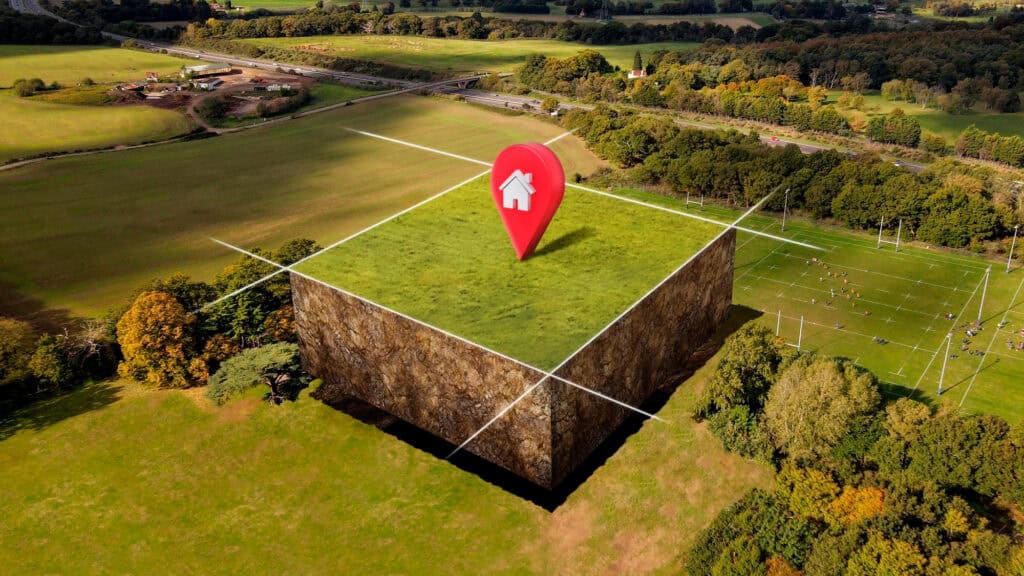As the real estate sector in the Arab world becomes more digital, the role of Multiple Listing Services (MLS) is growing rapidly. MLS platforms offer centralized databases that help real estate agents, developers, and potential buyers access and share property information efficiently. However, as listings become more detailed and visually rich—with photos, videos, floor plans, and virtual tours—there’s an increasing need to address intellectual property rights (IPR). Understanding and protecting intellectual property is not just a legal necessity; it’s a key component in ensuring transparency, fairness, and professionalism in the real estate industry.
In this article, we explore what intellectual property means within the MLS framework, why it matters, what kind of content is protected, and how real estate professionals can avoid legal problems while respecting creators’ rights.

What Is Intellectual Property in MLS Content?
In simple terms, intellectual property refers to creative content and material that is protected by law. In an MLS context, this includes original photos of properties, video walkthroughs, 3D renderings, floor plans, and written property descriptions. These materials are usually created by agents, photographers, marketing teams, or property developers—and their use is governed by intellectual property laws in each country.
In many cases, the person who creates the content automatically owns the copyright unless they’ve transferred those rights through a contract. For example, if a real estate agent hires a freelance photographer to take property photos, the photographer may still own the rights unless a written agreement says otherwise.
This can become complicated when multiple people upload content to MLS platforms, or when listings are shared across agencies, property portals, or social media without proper attribution or permission.
Why Intellectual Property Rights Matter in Real Estate
Respecting intellectual property is not just about avoiding lawsuits—it’s also about maintaining trust within the industry. When content is stolen or misused, it can create disputes between agents, damage business reputations, and even cause delays in property transactions.
In many Arab countries, real estate companies are investing heavily in professional marketing content to attract international investors and high-end buyers. This includes high-resolution photography, drone footage, professionally written descriptions, and even VR tours. Without clear rules on ownership and usage, this investment can be easily undermined.
For example, if a real estate company in Dubai pays to produce a 3D virtual tour and another agency copies that tour and reuses it in a competing listing, the original company suffers financial and reputational loss. It also raises ethical concerns and hurts collaboration across the industry.
Common IP Issues on MLS Platforms
One of the most common problems is the unauthorized reuse of listing photos. Agents might copy images from a rival’s MLS listing and repost them on a different platform, either intentionally or out of ignorance. This is more common in competitive urban markets like Cairo, Riyadh, or Beirut, where agents race to attract buyers to the same properties.
Another frequent issue is unclear ownership of content. Often, no written agreement is made between content creators and the agents or agencies using their work. This becomes especially tricky when agencies split agents change employers, and previous listings are reused or transferred without proper documentation.
There are also challenges around data scraping, where third-party websites automatically pull information, images, and videos from MLS platforms without permission. This not only violates IP rights but can also compromise data accuracy and lead to misleading property information.
Legal Protection and Copyright Laws in Arab Countries
Most Arab countries have enacted laws that protect intellectual property, many of which align with international conventions like the Berne Convention and the TRIPS Agreement under the World Trade Organization.
For example, the United Arab Emirates has Federal Law No. 7 of 2002 concerning Copyrights and Neighboring Rights, which protects literary and artistic works including photography and digital media. In Saudi Arabia, the Saudi Authority for Intellectual Property (SAIP) is responsible for overseeing copyright and enforcing regulations. Egypt also has detailed copyright laws under its Intellectual Property Rights Law No. 82 of 2002.
While the laws exist, enforcement can vary by country and case. Often, disputes must be resolved in civil courts, which can be time-consuming. This makes proactive protection and professional agreements all the more important.
Best Practices for Agents and MLS Platforms
To avoid copyright conflicts and ensure proper usage of content, both MLS platforms and agents should adopt clear policies and responsible practices.
First, any visual or written content used in a listing should be either owned by the agent, licensed for use, or credited to the original creator. If a photographer or videographer is hired, their contract should clearly state that the agent or agency owns the resulting media, or has the right to use it exclusively.
Agents should also avoid copying listing content from other platforms or competitors, even if it’s for the same property. It’s better to create new material or get written permission than to risk legal or reputational issues.
MLS platforms can help by requiring agents to confirm ownership or usage rights before uploading content. They can also implement automated watermarking features to protect photos and restrict unauthorized downloads or copying.
In the case of shared listings—where multiple agencies may be promoting the same property—MLS platforms should clarify who owns the original listing content, and whether others are permitted to use it. This can be managed through content tagging or verification features.
Creating Clear Usage Agreements
To reduce confusion and disputes, it’s important for real estate agencies to have clear usage agreements in place. These agreements can define who owns the listing content, how long it can be used, and what happens when agents move to another firm or if a property is taken off the market.
For example, an agreement may specify that an agent owns the photos they took and can use them in their portfolio, but that the brokerage has exclusive marketing rights for as long as the property is listed. Similarly, content created for a developer may remain their property, even if the listing is shared by different agents.
Having such agreements signed and archived can protect all parties and make it easier to resolve disputes without going to court.
The Role of Technology in Protecting IP
Technology can also play a major role in safeguarding intellectual property in MLS content. Platforms can use image fingerprinting tools or AI-powered content recognition to detect unauthorized copies of images or videos online. Watermarking and digital signatures can identify the source of original content, making it easier to track misuse.
Blockchain technology is also being explored as a solution for managing IP in real estate content. By registering original media files on a blockchain ledger, agents and creators can prove ownership and control usage more transparently.
As these technologies evolve, MLS platforms in the Arab region have an opportunity to lead the way in responsible, innovation-driven real estate practices.
Educating Industry Professionals
Many IP violations in real estate are unintentional. Agents may not be fully aware of the legal risks of copying content or may assume that publicly available material is free to use. That’s why education is essential.
Brokerages, real estate associations, and MLS providers should offer training sessions, guides, or toolkits to help professionals understand copyright laws, licensing terms, and best practices. This is especially important for newer agents or those entering the field from other industries.
By promoting a culture of respect for content ownership, the real estate industry in the Arab world can build a more ethical and professional standard across the region.
Conclusion
As digital property listings continue to dominate the real estate landscape in the Arab world, the issue of intellectual property rights can no longer be overlooked. Photos, videos, descriptions, and design elements are not just marketing tools—they’re legally protected works of creative value.
By understanding what content is protected, following legal frameworks, using technology wisely, and creating transparent usage agreements, agents and MLS platforms can avoid conflicts and create a more trustworthy marketplace.
As Arab real estate markets become more global and digital, respecting intellectual property will be a key factor in maintaining competitiveness, protecting creativity, and encouraging innovation. It’s not just about following the law—it’s about building a more respectful, secure, and sustainable real estate ecosystem.













